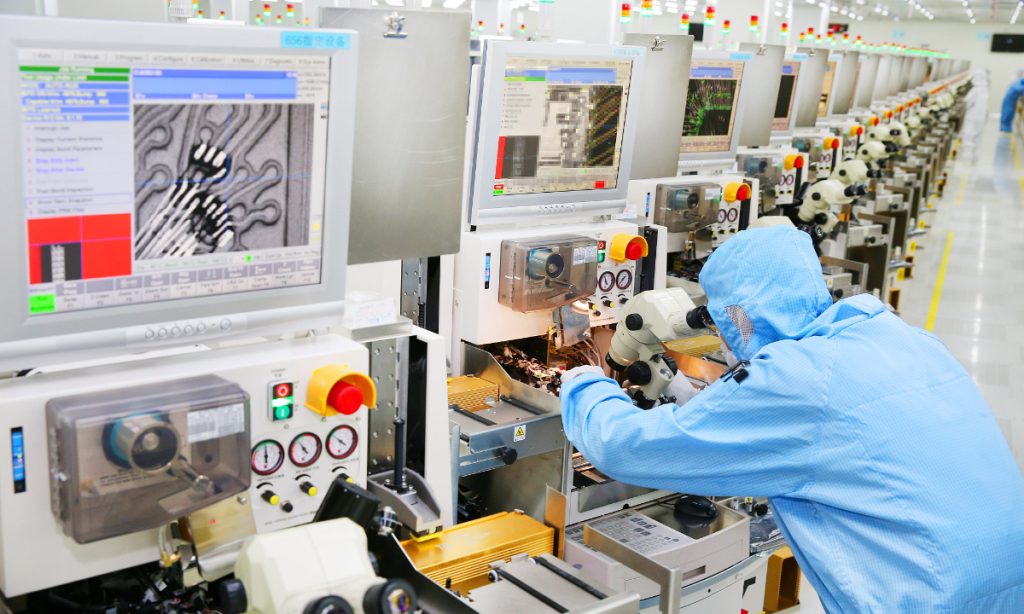China should further focus on basic materials for key chip-making to achieve tech self-sufficiency amid Western crackdown: political advisor

China should make full-fledged breakthroughs in the Western-strangled chip manufacturing industry, with a focus on basic materials for chip-making such as photoresists and high-purity hydrogen fluoride for which China currently relies on imports, Xie Suyuan, a member of the National Committee of the Chinese People's Political Consultative Conference (CPPCC) and an Academician of Chinese Academy of Sciences, told the Global Times on the sidelines of a group discussion during the two sessions on Thursday.
Amid a relentless US-led crackdown against China's chip industry, the country has been mulling over an all-out effort to achieve tech self-sufficiency across key industrial chain. One, among which, is the research and development (R&D) involving advanced chipmaking technology extreme ultraviolet lithography (EUV).
"Chip production is a huge project, and the bottleneck we face largely lies in inadequate material technology," Xie said. He pointed out that although China is well recognized for its basic research level in certain materials, it still lacks adequate R&D in leading and high-end materials, being "strangled" in such fields as electronic information materials, aerospace materials, and luminescent materials.
According to Xie, improving self-sufficiency in these sectors needs inputs across the supply chain. He thus suggested that China's Ministry of Industry and Information Technology (MIIT) should properly guide relevant research institutes, companies and financial institutions to jointly set up an institute on "intermediate experiment," which he said can be pivotal in facilitating the industrialization of "groundbreaking, cutting-edged" research achievements in basic materials.
In January, China's MIIT, along with the National Development and Reform Commission, the country's top economic planner, issued guidelines promoting the innovative development of intermediate experiment in the manufacturing industry.
The "intermediate experiment" refers to a transitional test involving transferring new products in the trial phase to production process. Such test, which links up the basic research with industrial application, is particularly crucial in research result transformation of chemical, new materials and pharmaceutical industries, according to Xie.
"Without an intermediate experiment, the chance of successful industrialization is only 30 percent, while the rate could reach 80 percent after undergoing the test," he explained. He added that China's whole-nation system advantage is also helpful in speeding up the industrialization of research result.
In addition to chipmaking, a number of group discussions held on Wednesday and Thursday during the two sessions also put extensive focus on building self-sufficiency in emerging sectors such as artificial intelligence (AI) ecosystem, ranging from AI chips, domestically built large models to further industrial applications.
Guo Yufeng, a member of the CPPCC National Committee and vice general manager of Chinese chipmaker Feiteng Information Technology, said during a panel discussion on Thursday that it remains a key issue as to how China will leverage its sheer market size to fast track the innovation path. "Large-scale industrial application and application scenarios are the key in creating new quality productive forces. They are also pivotal in speeding up the technology's rapid iteration."
China's Government Work Report released on Tuesday highlighted 10 major tasks this year, and "striving to modernize the industrial system and developing new quality productive forces at a faster pace" was listed at as a key priority.
According to Xie, a foundation for China to develop "new quality productive forces" is shoring up the inputs on basic research and intermediate experiment. "This is the best way to cope with US-led decoupling and de-risking push," Xie added.